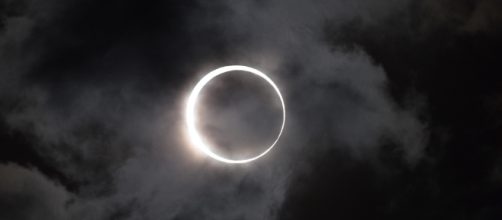With the Solar Eclipse coming and stretching over most of the continental United States, many people are excited to be able to go out and see it. Here are some tips to help with your solar eclipse experience.
Looking for the totality
Being able to see the totality of the eclipse -- when the moon is completely covering the sun -- is what everyone wants to do. However, the totality will not be visible in all states that are in the path of the eclipse. Looking at the eclipse requires proper Eye Protection, which not everyone has. Many places that sold or gave out official eye protection glasses have run out.
If you don't have proper protective glasses, the best way to figure out how much of the sun is covered by the moon is to look at the shadows. One of the best ways to look at the shadows is to turn your back to the sun and make a pound sign with your fingers. The projected shadow on the ground should be similar to what the sun is looking like above you.
If you're in an area where you will be experiencing totality, you can watch the moon's shadow travel toward you. The shadow travels at 1,600 miles per hour. It will travel quickly and cover you in darkness, leaving a ring of sunlight around you.
What can happen to your eyes
Keeping your eyes safe is the most important part of the solar eclipse.
We know that having certified eyewear is necessary, but what could really happen if you decide to watch the eclipse without proper eye protection?
Without proper eye protection, the rays of the sun can sunburn your eyes. The sun will appear less bright than usual due to the shadow of the moon, but the rays are still damaging. Because it's easier to look at the sun during this time, it's easier for you to get sunburn on your eyes, otherwise known as photokeratitis.
Looking at the sun could also cause Solar Retinopathy. Solar retinopathy occurs when light floods the retina on the back of the eyeball, and causes permanent damage to your eyes.
Just a few seconds of looking at the sun during this time can cause major damage to your eyes, including partial to full blindness.
Unless you have certified protective eyewear, it is best to not look directly at the eclipse. Using sunglasses will not work either. Looking through a telescope, binoculars, or a camera lens will cause more damage to your eyes, as the glass will project the light back into them.
The solar eclipse can be a great, science-filled experience, but be sure to take all the necessary precautions to avoid injury.


